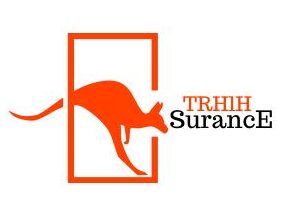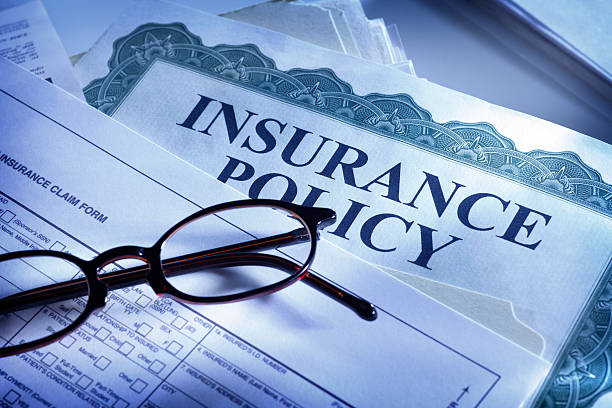Essential Guide to Small Business Professional Liability Insurance
As a small business owner, protecting your assets is crucial. Small business professional liability insurance covers claims of negligence, errors, or omissions that can occur during the course of your work. This type of insurance helps safeguard your business from financial losses that arise from lawsuits, making it an essential consideration for your operations.
a grasp of the specific needs of your business will help you choose the right coverage. Whether you provide consulting services, design work, or any professional advice,
this insurance can shield you from unforeseen incidents. With the right policy, you can operate with greater peace of mind.
Investing in professional liability insurance is not just about compliance; it’s about ensuring your business’s long-term health.
Being prepared for potential claims can save you time and money down the line. Knowing you have protection in place allows you to focus on growing your business.
How Professional Liability Insurance Works
Professional liability insurance protects you from claims that may arise due to mistakes or negligence in your professional services. It covers legal costs and damages if a client sues you.
Here are some key aspects of how it works:
- Coverage Types: It generally includes coverage for errors, omissions, or negligence. This means if you make a mistake in your work, your policy can help pay for any resulting legal fees.
- Claims Process: If a claim is made against you, you would notify your insurance provider. They will investigate the claim and guide you through the process.
- Limitations: Be aware that there may be limits on the amount your policy will pay. These limits depend on your specific policy details.
- Exclusions: Some situations might not be covered. Common exclusions can include criminal acts or fraud, so it’s important to read your policy carefully.
- Premiums: You pay a premium, which is the cost of your insurance. This amount can vary based on your profession, experience, and coverage needs.
With this insurance, you can feel more secure in your work, knowing you have support against potential claims.

It allows you to focus on providing your services rather than worrying about financial risks.
What Is Included in Professional Liability Insurance?
Professional liability insurance covers various risks that come with providing services. It protects you against claims of negligence, errors, or omissions in your work. Here are key components included in this insurance:
- Negligence Claims: Coverage for claims that you failed to provide proper services or advice.
- Errors and Omissions: Protection if you make a mistake in your professional duties that causes financial harm to a client.
- Defamation: Coverage for claims that you made false statements about a client or competitor.
- Legal Defense Costs: This insurance often includes expenses for legal defense, even if the claim is not valid.
- Settlements and Damages: If you are found liable, this insurance can help pay for settlements or court-awarded damages.
The specifics of your coverage can vary based on the policy and provider. Always review your policy to understand what is included. Tailor it to fit the unique needs of your business for the best protection.
see also; 10 Cheap Workers Comp Insurance Options for Small Businesses
Assessing Your Insurance Needs
Understanding your specific insurance needs is key to protecting your small business. It involves evaluating risks, determining the right coverage, and setting appropriate policy limits.
Determining Risk Exposure
Begin by identifying the risks your business faces. This includes evaluating your services, customer interactions, and any professional advice you provide. Consider factors such as:
- Industry Type: Certain fields have higher risks. For example, consultants may face claims related to advice given.
- Clientele: Larger clients may have stricter requirements.
- Location: Geographic factors can influence risk levels.
List potential risks and assess how they might impact your operations. This step helps you understand what types of coverage fit your business best.
Scope of Coverage
Next, define the scope of coverage you need. This encompasses various aspects, such as:
- Errors and Omissions: Protection against claims of negligence or failure to deliver services as promised.
- Legal Costs: Coverage for legal expenses from lawsuits.
- Reputation Management: Some policies may offer support for public relations in case of a claim.
Evaluate your services to determine which coverage types are necessary. Check policy options to find what best addresses your unique risks.
Policy Limits and Deductibles for Small Business Professional Liability Insurance
Selecting the right policy limits and deductibles is crucial. Policy limits refer to the maximum amount an insurer will pay for a claim. Deductibles are the amounts you pay out-of-pocket before coverage kicks in.
- Assess Your Needs: Choose limits that reflect the size of your business and potential claim costs.
- Find Balance: Higher limits often mean higher premiums. Determine what you can comfortably afford.
Make sure the deductible aligns with your budget. A lower deductible may be easier to manage but can result in higher premiums. Aim for a smart balance that protects your assets without straining your finances.
Selecting the Right Insurance Provider
Choosing the right insurance provider is crucial for protecting your business. You need to consider the insurer’s reputation, compare quotes, and fully understand the policy terms.
Insurer Reputation and Financial Stability
Researching an insurer’s reputation is important. Look for companies with a strong track record in the industry. Read customer reviews and check ratings from organizations like A.M. Best or Moody’s. These ratings indicate the company’s financial strength and reliability.
You can also ask other business owners about their experiences. Trustworthy insurers often have positive feedback. A stable company is less likely to run into financial trouble, ensuring they can pay claims when you need them.
Comparing Quotes and Policies
When comparing quotes, receive estimates from multiple providers. This helps you find a policy that fits your budget. Keep in mind that the cheapest option isn’t always the best. Look for coverage limits and exclusions that might affect your business.
.
GET QUOTE
.
Make a comparison table to easily visualize your options. Include coverage features, deductibles, and premium costs. This will help you make an informed decision. Ensure each policy meets your specific business needs before selecting one.
Policy Terms and Conditions
Reading the policy terms is essential. Look for definitions of key terms, coverage limits, and exclusions. Ensure you fully understand what is covered and what is not.
Pay attention to claims processes and timelines. Know how to file a claim and what information you will need. This knowledge can speed up the process when you need to use your insurance.
Claim Process and Risk Management
When you experience a claim, start by notifying your insurance provider. This process is crucial for getting help quickly.
Steps to File a Claim:
- Contact Your Insurer: Call or email your insurance company as soon as an incident occurs.
- Gather Information: Collect all details about the incident. This includes dates, times, and involved parties.
- Complete the Claim Form: Your insurer will provide a claim form. Fill it out accurately and completely.
- Submit Supporting Documents: This may include contracts, correspondence, and any other relevant records.
After you submit your claim, the insurance company will review it. They may ask for more information or conduct an investigation. This can take time, so stay in touch.
Risk Management Tips:
- Training: Provide training for yourself and your employees to reduce risks.
- Contracts: Use clear contracts to define your services and limit liability.
- Documentation: Keep thorough records of all business activities, communications, and contracts.
- Regular Reviews: Regularly evaluate your business practices to identify potential risks.
By being proactive in risk management, you can help minimize claims and protect your business effectively.
Q: What is professional liability insurance? A: Professional liability insurance, also known as errors and omissions (E&O) insurance, protects your business from claims arising from mistakes or negligence in your professional services.
Q: Who needs professional liability insurance? A: Professionals who provide advice, services, or opinions to clients, such as consultants, accountants, lawyers, engineers, and financial advisors, typically need professional liability insurance.
Q: What does professional liability insurance cover? A: It covers legal fees, settlements, and judgments resulting from claims of errors, omissions, or negligence in your professional services.
Cost and Coverage
Q: How much does professional liability insurance cost? A: The cost varies based on factors like industry, revenue, number of employees, claims history, and coverage limits.
Q: What factors affect the cost of professional liability insurance? A: Factors influencing the cost include the complexity of your services, size of your business, claims history, and the amount of coverage you need.
Q: Can I bundle professional liability insurance with other policies? A: Yes, many insurers offer discounts for bundling professional liability insurance with general liability and other business insurance policies.
Claims and Coverage Limits
Q: What is the claims process for professional liability insurance? A: If you face a claim, notify your insurance provider immediately and follow their claims process.
Q: How do I determine the appropriate coverage limits for professional liability insurance? A: Consider the potential financial impact of a lawsuit and consult with an insurance agent to determine the appropriate coverage amount.
Q: What is the difference between professional liability insurance and general liability insurance? A: Professional liability insurance covers claims related to professional services, while general liability insurance covers bodily injury, property damage, and other general business risks.







